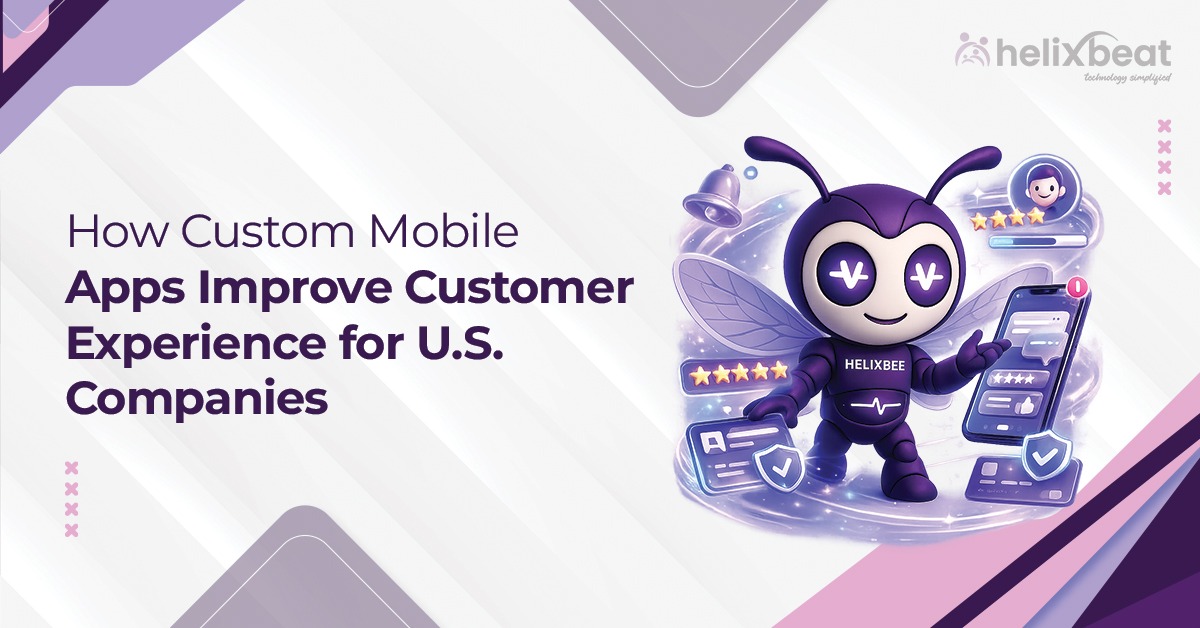What if one unnoticed vulnerability could bring your entire business to a halt? For one fast-growing SaaS company, that scenario came terrifyingly close. But thanks to continuous security testing services by Helixbeat, a silent threat was identified—just in time.
Unlike firewalls or endpoint tools that react after an attack, continuous security testing acts as a preventive layer. It silently scans, tests, and validates software against the most sophisticated attack vectors—safeguarding data without disrupting the user experience.
This blog takes you through a real-world-inspired scenario that highlights how ongoing security assessments, backed by a reliable partner like Helixbeat, can make the difference between disaster and resilience.

Table of Contents
Why One-Time Security Checks Are No Longer Enough?
Regular testing is good—but continuous testing is critical in today’s evolving threat landscape.
Threats Don’t Wait. Why Should Testing?
Cybercriminals are relentless. New vulnerabilities emerge daily, often targeting zero-day flaws. Traditional once-a-quarter or pre-release testing fails to catch real-time threats as they arise.
Consider a fintech firm that updated its payment gateway code on a Friday. That same evening, a flaw in session handling went live. With no continuous testing in place, the vulnerability remained undetected until Monday morning—by then, hundreds of user sessions had been exposed.
The Rise of Cloud Environments
As businesses rapidly adopt cloud environments, applications have become dynamic and decentralized. Static security checks are no longer effective in protecting APIs, third-party plugins, or dynamic user interactions across multiple cloud zones.
Continuous security testing services bridge this gap. They provide real-time insights into your cloud-based applications, detecting misconfigurations or outdated encryption protocols before attackers can exploit them.
How Continuous Security Testing Actually Works?
Let’s understand the actual mechanics of continuous testing that make it a true preventive force in modern cybersecurity.
1. Automated Scanning on Every Update
Every code commit triggers a real-time security scan. Vulnerabilities are flagged instantly, allowing developers to patch issues before code reaches production. This automation is a key feature of modern security testing services.
2. Real-World Threat Simulation
Advanced tools simulate real-world attack scenarios, including SQL injections and cross-site scripting. This is especially valuable for businesses with customer-facing apps or those handling sensitive financial data.
3. Cloud-Native Security Checks
With cloud testing fully integrated, the system continuously evaluates network configurations, IAM policies, data access points, and third-party API interactions. This ensures up-to-date protection across dynamic environments.
4. Reporting and Actionable Insights
Unlike basic tools, leading security testing services provide dashboards that display risk scores, offer remediation guidance, and maintain a full testing history for compliance tracking.
This process forms a self-learning loop—the more often it runs, the more adaptive and intelligent the system becomes, enhancing protection with every cycle.
Case Study: How Continuous Security Testing Prevented a Major Breach
This real-world scenario illustrates how continuous security testing made a pivotal difference.
Background
A leading e-commerce SaaS platform was preparing for a major update ahead of a festive sale. The product team pushed a build that included several third-party libraries.
The Threat
Unbeknownst to the team, one of the libraries contained a known vulnerability in its authentication module. This flaw could have allowed attackers to bypass login protocols using specially crafted requests.
The Intervention
Helixbeat’s security testing services flagged the issue within 30 minutes. Their continuous testing setup scanned the code, reviewed the library, and immediately notified the team.
The Fix
The team replaced the vulnerable library and rolled out a secure patch. Since this was caught before deployment, no customer data was ever exposed.
This success story showcases why many companies now consider continuous testing not a luxury but a critical line of defense.
Key Benefits of Continuous Security Testing
When embedded into DevSecOps, security becomes proactive rather than reactive.
Stops Vulnerabilities Before They Go Live
Automated security testing services detect flaws early in the development process, significantly reducing the risk of data breaches before the software reaches production.
Reduces Cost of Fixing Bugs
Fixing a security bug in production can cost up to 30 times more than addressing it during development. Continuous testing helps dramatically lower this risk and associated expenses.
Helps With Compliance
Whether your organization follows HIPAA, GDPR, or ISO standards, continuous testing helps document and prove ongoing compliance, simplifying audits and reporting.
Builds Customer Trust
Brands that prioritize security earn long-term customer trust. Customers especially value platforms that safeguard sensitive data, such as financial or health information.
Supports Scalable Testing
With advanced solutions like cloud testing, your security infrastructure can scale automatically as your application or software grows—eliminating the need for manual intervention.
Why Partnering With the Right Testing Provider Matters?
Choosing the right security testing services provider determines how effectively you can defend against evolving threats.
Helixbeat’s Edge
Unlike cookie-cutter tools, Helixbeat offers tailor-made Testing as a Service (TaaS) that adapts seamlessly to your tech stack, business logic, and compliance requirements, including advanced cloud testing capabilities.
Holistic Testing Suite
From penetration testing to accessibility and performance checks, Helixbeat’s TaaS covers every layer. This ensures security operates as part of a unified quality approach rather than in isolation.
Flexible Engagement Models
Whether you need a dedicated team for long-term testing, an on-demand model for sprints, or managed services to fully outsource your testing, Helixbeat has you covered with scalable solutions.
Real Results
- 99% bug detection rate
- 25% faster release cycles
- 35% increase in ROI from improved testing strategies
This powerful combination of strategy, tools, and expert personnel makes Helixbeat a trusted partner for businesses across healthcare, fintech, and retail sectors.
What to Look for in Security Testing Services?
Every organization has unique needs, but a few traits are non-negotiable when choosing security testing services.
Integration With CI/CD Pipelines
Testing should align seamlessly with your development process. Continuous integration means continuous protection, helping catch vulnerabilities early.
Multi-Layered Testing
Opt for services offering static, dynamic, and runtime testing. This comprehensive approach ensures there are no blind spots in your security coverage.
Support for Cloud Testing
With modern applications deployed across hybrid and cloud environments, cloud testing capabilities are essential to protect APIs, data storage, and user interactions.
Expertise in Regulatory Standards
Ensure the service provider understands regional data privacy laws and compliance mandates such as GDPR, HIPAA, or PCI-DSS.
Actionable Reports
A good security testing service not only identifies issues but also explains how to fix them clearly, enabling your teams to act swiftly.
Partnering with a team like Helixbeat means you’re not just getting tools—you’re gaining expertise that guides you toward secure and reliable software delivery.
Final Words
In an age where one weak link can break your entire digital chain, continuous security testing services act as your invisible shield. They don’t wait for a breach to react. Instead, they silently guard every line of code, every API call, and every cloud testing deployment.
Helixbeat understands this responsibility deeply. Through their Testing as a Service (TaaS) platform, they help companies stay one step ahead of attackers, ensuring not just safety but also scalability, speed, and long-term success.
If you’re ready to strengthen your security backbone without slowing down innovation, it’s time to talk to Helixbeat. Their TaaS solution is built for today’s dynamic, cloud-driven world, integrating seamlessly into your development lifecycle.
Protect your software. Empower your business. Contact Helixbeat and integrate security from day one to confidently face tomorrow’s threats.
FAQs
1. Why is continuous testing better than periodic testing?
It helps detect issues in real time, reducing the risk of breaches and minimizing costs by catching bugs early.
2. Can security testing services help with compliance?
Yes, continuous testing provides documented evidence needed for compliance with GDPR, HIPAA, and ISO standards.
3. What is cloud testing in security assessments?
Cloud testing evaluates the security of applications deployed on cloud infrastructure, covering access control, data encryption, and more.
4. How often should security testing be done?
Ideally, with every code update or deployment, especially in CI/CD pipelines.
5. Does Helixbeat offer customizable security testing services?
Yes, Helixbeat provides tailored Testing as a Service (TaaS) with options for dedicated teams, managed services, and on-demand testing.
6. What tools are commonly used in security testing services?
Tools like OWASP ZAP, Burp Suite, and custom in-house scripts are often used, depending on the testing type and environment.














